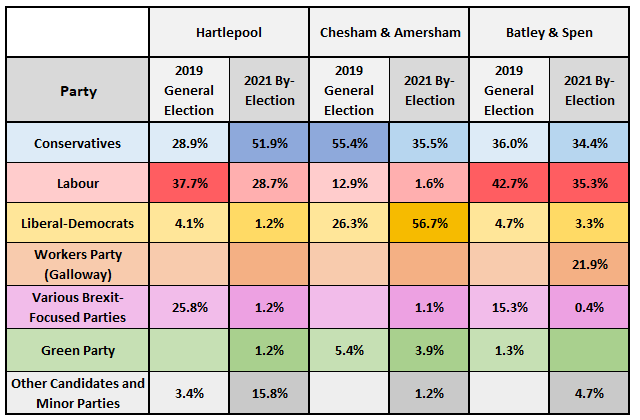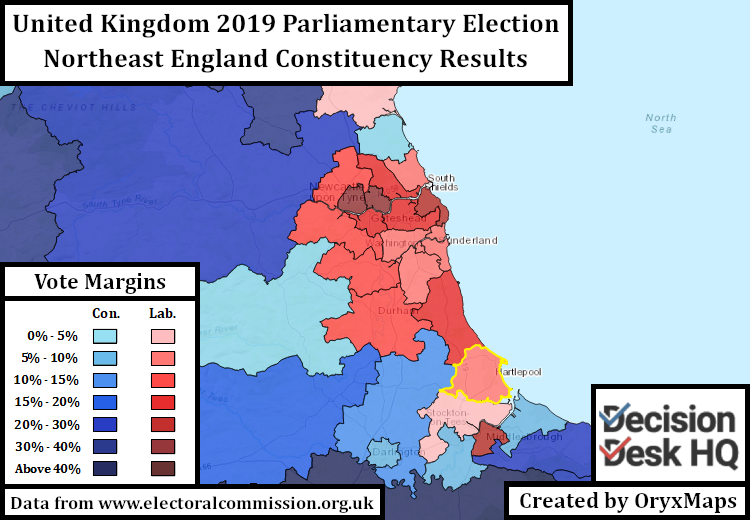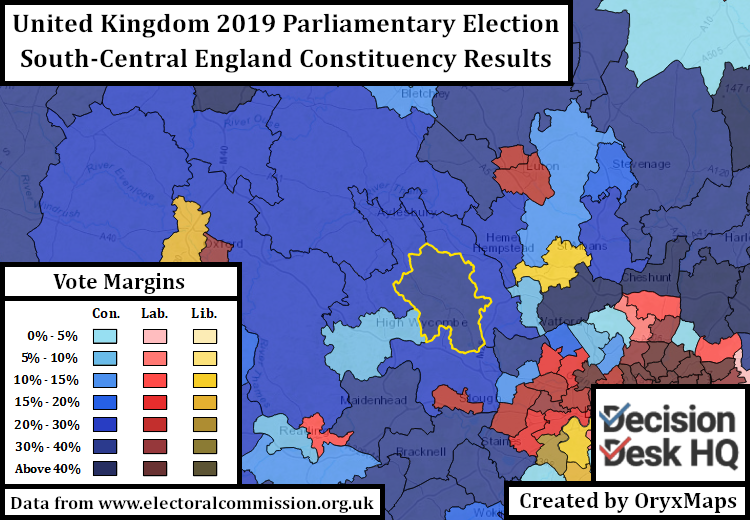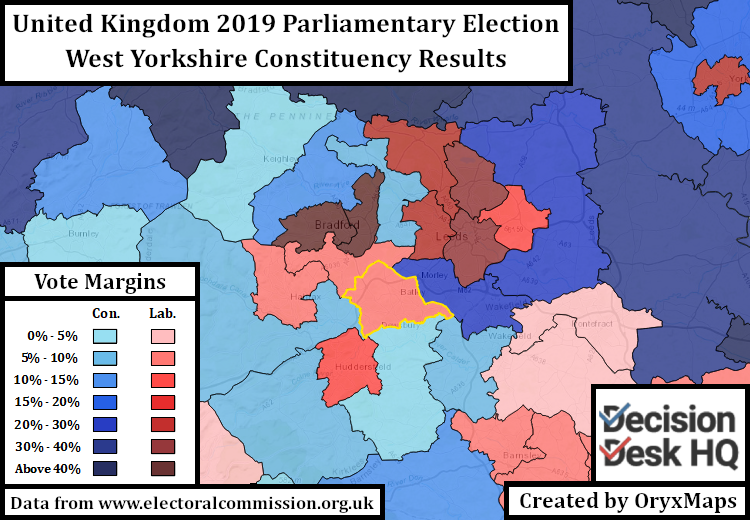Off-cycle elections are not perfect predictors of a future election. A single data point with lower than average turnout is vulnerable to random and parochial local events. This holds true no matter the country. There were four United Kingdom constituency by-elections – the equivalent of a U.S. Congressional special election – in the past two months. The National Conservative Party enjoys a large lead in national polling, but has not dominated the recent by-elections. They did not win the Thursday July 1st Batley & Spen by-election for example, startling the many commentators who expected a Conservative victory. Opposition parties usually benefit from the lowered turnout, but this is only one factor of many. The unique situation of localized elections with possible national consequences makes for intriguing off-cycle elections.
The By-Elections
Of the four contests, three deserve analysis. Local factors produced divergent outcomes in each of the three seats.

Hartlepool
Between the end of World War II and 2021, there were only five Westminster by-elections where the party of government gained a seat from the opposition. This rarity just occurred again and now there are six. Incumbent Labour Member of Parliament (MP) Mike Hill resigned in March following sexual harassment allegations, triggering a by-election for his northeastern Hartlepool seat. Hartlepool voted for Brexit by almost 70%, and Labour only won 37.7% of the vote in the 2019 General Election. The Conservatives and the Brexit Party’s leader Richard Tice split Labour’s 2019 opposition, denying both potential victory.

The National Labour Party anticipated a struggle in Hartlepool and hoped a by-election concurrent with two backlogged years of local council and mayoral elections (due to the pandemic) would boost base turnout. Labour nominated former MP Paul Williams, a doctor and a previous MP from a neighboring constituency. The Conservative Party selected neighboring North Yorkshire local councilor Jill Mortimer. Labour hoped Dr. Williams’ profile would capitalize on coronavirus anxieties, but Mortimer leveraged the Conservative Party’s successful vaccination program to outflank Labour. Also on the ballot was Ben Houchen, the popular incumbent Conservative regional mayor who won re-election with a 45-point margin. Mortimer won by 51.9% to 28.7%, a margin strikingly similar to the combined Brexit and Conservative Parties’ total. The concurrent local elections ended up hurting Labour in the campaign for the Hartlepool seat.
Chesham & Amersham
The Conservative Party represented Chesham & Amersham continuously since the seat’s formation in 1974, and has historically represented the seat’s effective geography since 1945. Incumbent Dame Cheryl Gillanin died in April necessitating a by-election. This is one of only a few London commuter constituencies where a majority of voters favored Brexit, and Gillanin previously won by almost a 30-point margin. Chesham & Amersham was considered a safe seat for the Conservative Party, with no potential for surprise.

Liberal-Democratic Businesswoman Sarah Green flipped the margins to win Chesham & Amersham by more than 20 points. Green ran against Conservative policies, promising to oppose the HS2 High-Speed rail development plan to cross the constituency and Conservative development plans for greenbelt commuter towns. Labour’s percentage of the vote fell to 1.6%, as opposition voters consolidated behind the Liberal-Democrats to stop the Conservatives.
Batley & Spen
Batley & Spen opened up when incumbent MP Tracy Brabin won the West Yorkshire (Greater Leeds) mayoral election in May. Batley & Spen voters favored Brexit by a 60-to-40 margin, and Brabin won in 2019 with 42.7% over a divided opposition. The Conservative candidate won 36% and a Brexit-favoring local independent won 12.2%.

Fearing a repeat of Hartlepool, Labour selected Kim Leadbeater. Leadbeater is the sister of Jo Cox, the former Batley & Spen MP murdered by a neo-Nazi before the Brexit vote in 2016. Leadbeater faced challenges from both Conservative Leeds councilor Ryan Stephenson, and from political gadfly George Galloway. Galloway’s perennial candidacies turn away most voters, but his outspoken isolationism and support for Middle Eastern regimes gives Galloway a base among some Muslim minority populations. Leadbeater maintained Labour control and defeated Stephanson by just over 300 votes, or a 1% margin, even though Galloway won over 20% of the vote.
The Impact
Off-cycle elections barely impact the electoral calculus, but they can dramatically alter the dominant political narrative. The local election and Hartlepool losses tainted Labour Leader Keir Starmer, exposing the flaws of his ‘technocratic’ brand. A second loss in Batley & Spen may have initiated calls for Starmer’s resignation and a change of party leadership. Galloway partially campaigned on a platform to oust Starmer, so Galloway’s substantial share of the vote leaves Starmer in a weak position. Chesham & Amersham prompted Conservative discussion about whether Prime Minister Boris Johnson was insufficiently ideological. Long time Conservative partisans do not want to potentially sacrifice their wealthy traditional strongholds to maintain Johnson’s ‘post-industrial’ gains in the north of England. Off-cycle election results ripple beyond the intentions of voters and impact the national political landscape – no matter what country the voters live in.
Ben Lefkowitz (@OryxMaps) is a Contributor to Decision Desk HQ.